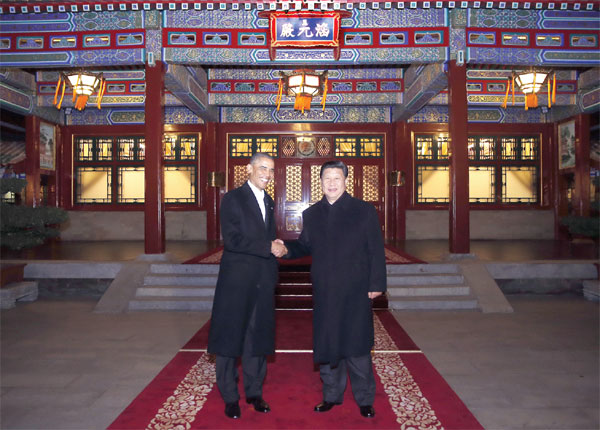A stroll sets stage for diplomacy
Updated: 2014-11-12 13:38
By Zhao Shengnan, Zhong Nan in Beijing and Amy He in New York(China Daily USA)
|
||||||||
|
Chinese President Xi Jinping shakes hands with US President Barack Obama at the Zhongnanhai leadership compound on Tuesday night in central Beijing after the APEC meeting. Ju Peng / Xinhua |
China's stability and development will benefit the world and bring more opportunities to the US and to bilateral cooperation, Chinese President Xi Jinping said Tuesday during a bilateral meeting with visiting US President Barack Obama.
Before the meeting, the two heads of state took a walk at the Zhongnanhai leadership compound in central Beijing.
Xi had dinner with Obama, who is on his first visit to China since 2009, and briefed him on China's efforts in comprehensively deepening reform, advancing rule of law and strengthening the building of the ruling party.
The stroll gave rise to expectations that the unusually informal atmosphere would help the two leaders tackle high stakes issues at a formal meeting on Wednesday.
Standing on a traditional Chinese bridge, Xi introduced Obama to the history of Ying Tai, an ancient imperial palace where they later met.
Knowing China's modern history is important for understanding Chinese people's current aspirations and path forward, Xi told Obama.
Observers said the economy, security, climate change and efforts to fight terrorism will be high on the agenda, and the meetings are likely to offer a blueprint for a new model of ties between major countries.
Niu Xinchun, a senior expert at the China Institutes of Contemporary International Relations, said both countries are expected to manage differences over maritime and territorial issues in Asia, and deal with the relationship between the looming Trans Pacific Partnership agreement and the Free Trade Area of the Asia Pacific.
The two countries reached a breakthrough on Tuesday in Beijing to accelerate the expansion of the World Trade Organization's Information Technology Agreement (ITA), which could help eliminate $1 trillion in tariffs on high-tech product sales globally.
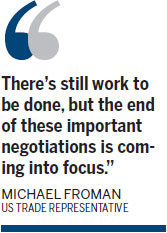
Obama said it was APEC's work that led to the ITA, for which an expansion is now being negotiated.
"So it is fitting that we are here with our APEC colleagues to share the news that the United States and China have reached an understanding that we hope will contribute to a rapid conclusion of the broader negotiations in Geneva," Obama said.
The deal would allow the "swift conclusion" on talks to enlarge the ITA at the WTO meeting in Geneva later this year.
Michael Froman, the US trade representative, said in Beijing that it is encouraging news for US companies that are keen to see global tariffs further cut on products such as medical equipment, GPS devices, video game consoles and next generation semiconductors.
Officials at WTO headquarters in Geneva must work out how quickly the tariffs are phased out, a point that thwarted an agreement last year.
"There's still work to be done, but the end of these important negotiations is coming into focus," Froman said.
The ITA took effect in 1997. The agreement now covers more than $4 trillion in annual trade.
"As many countries are still struggling to seek economic recovery and new areas for market growth, the new ITA breakthrough will encourage more trade between the world's largest and second largest economies," said Zhang Jianping, director of the International Economic Cooperation Institute of the National Development and Reform Commission.
Gary Hufbauer, senior fellow at the Washington-based Peterson Institute of Economics, called the trade tariff agreement "quite spectacular progress".
"It's really quite spectacular progress because up until now, there's been talk about liberalization and going forward, but no real action on the international front.
"This is real action. China agreed to quite a long list of products, it's a huge lift-up. The coverage of trade is quite large," he told China Daily.
"It's big in and of itself, and I think it will also be the passport for China to be welcomed into the Trade in Services Agreement, which China has wanted to join, which is another really big thing.," he added.
Gao Yuan contributed to this story. Contact the writers at zhaoshengnan@chinadaily.com.cn, zhongnan@chinadaily.com.cn, and amyhe@chinadailyusa.com.
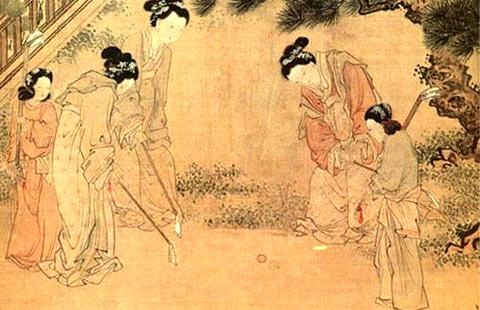
 Culture Insider: Chic items in ancient China
Culture Insider: Chic items in ancient China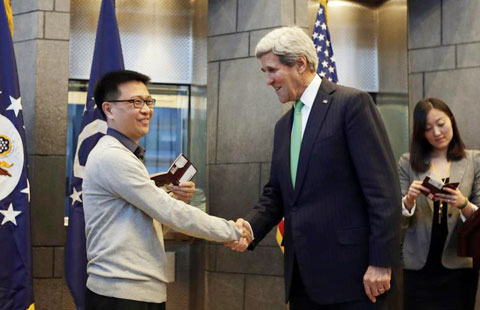
 Long-term visas issued for China, US citizens
Long-term visas issued for China, US citizens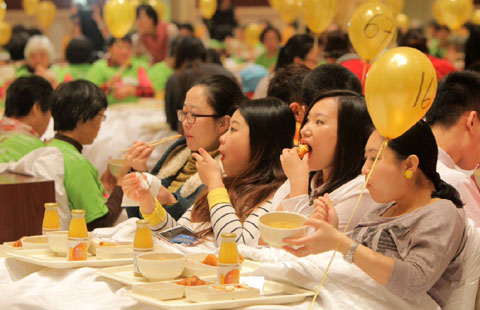
 The most people dine on the beds
The most people dine on the beds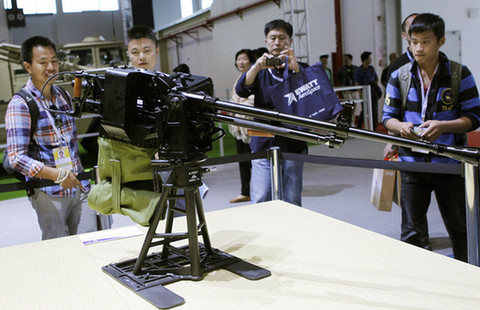
 Airshow China soars to success in Zhuhai
Airshow China soars to success in Zhuhai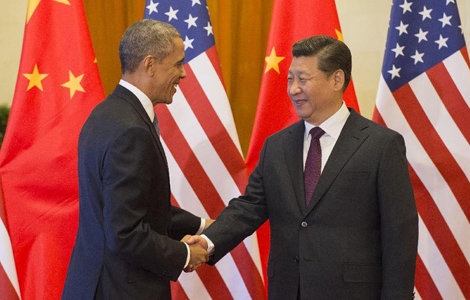
 Xi, Obama agree on major-country ties
Xi, Obama agree on major-country ties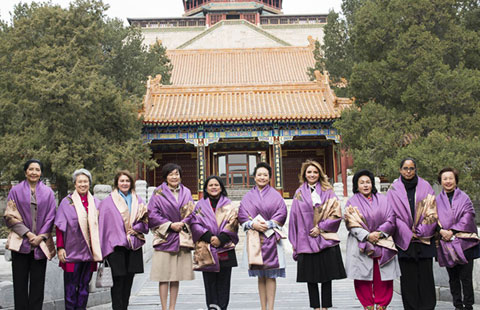
 Wives work to boost cultural exchanges among economies
Wives work to boost cultural exchanges among economies
 Express delivery bursts in Singles' Day
Express delivery bursts in Singles' Day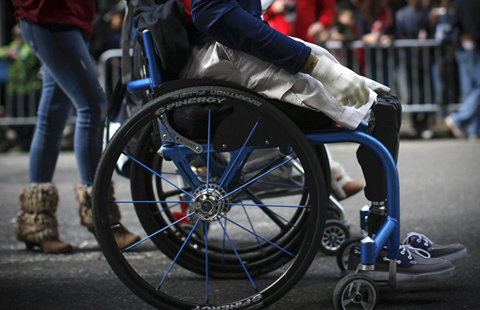
 Veterans day parade in the US
Veterans day parade in the US
Most Viewed
Editor's Picks

|

|

|

|

|

|
Today's Top News
Recalibrating China-US relations
US-China climate pact to pressure other countries
Yili closes deal with DFA in setting up US dairy plant
Express delivery bursts in Singles' Day
Veterans day parade in the US
Visit brings schools closer
Anbang US hotel deal raises queries
A stroll sets stage for diplomacy
US Weekly

|

|
